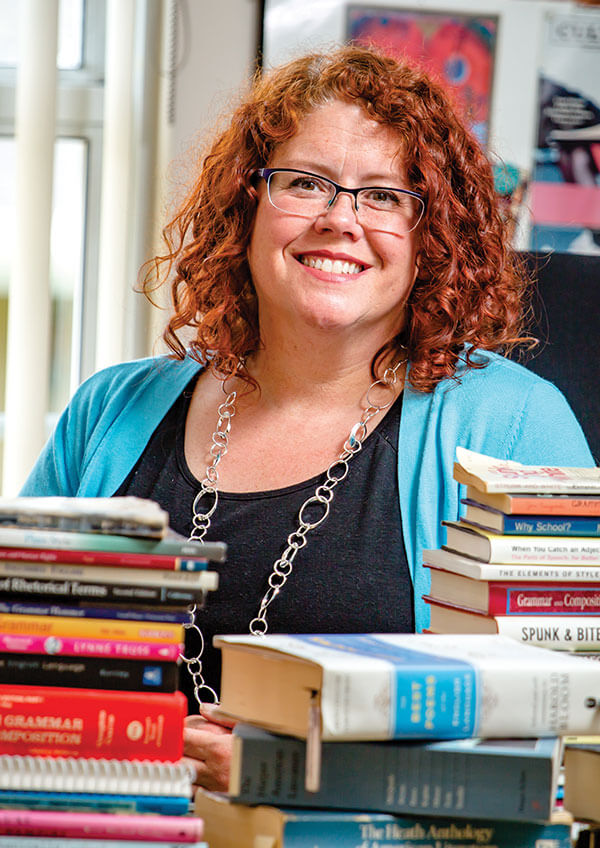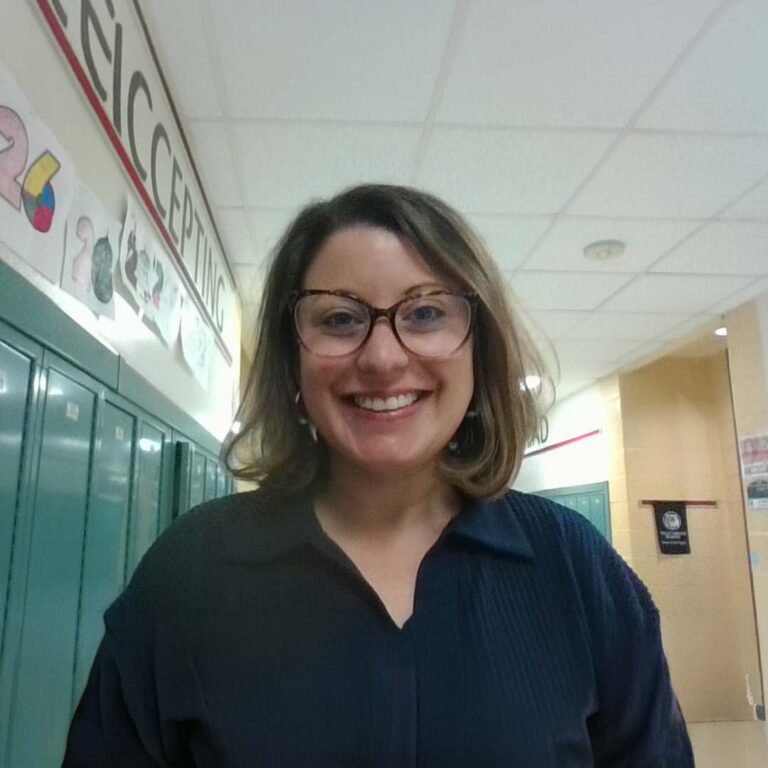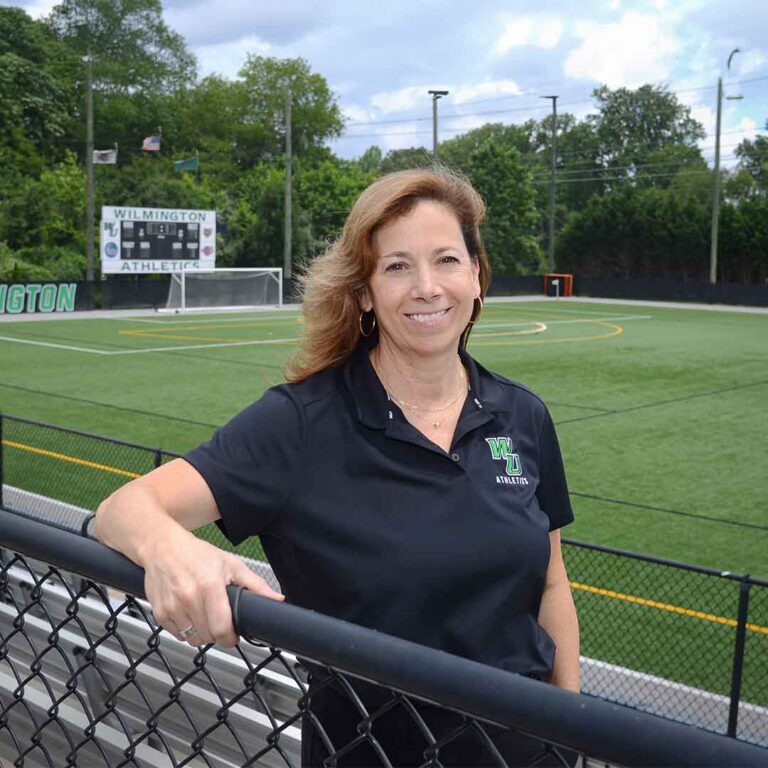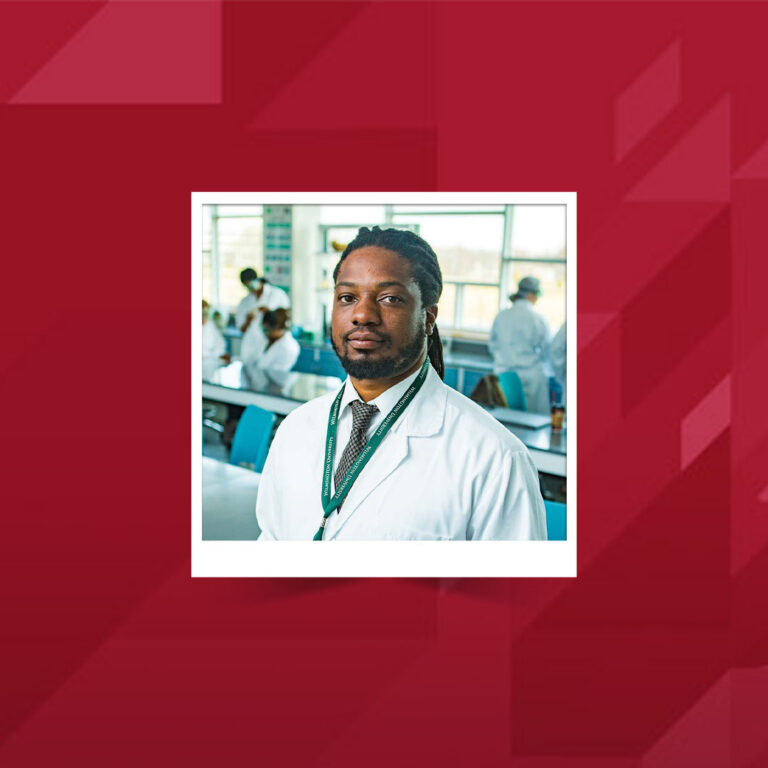Oh, The Humanities!

Dr. Kate Cottle says you need soft skills for hard jobs

They’re called “soft skills,” and they go by various names, including writing, critical thinking, communication, empathy, self-awareness, emotional intelligence and more, depending on who’s listing them.
Whatever they’re called, the key word is “soft,” and everything that adjective suggests. Activate the thesaurus on your word document and up pop synonyms that ascend the insult scale: lenient, easy, lax, indulgent, weak. Spineless.
The implication is clear: In the workplace, and often in life, “hard” (“solid, tough, unbreakable”) is better. So hard skills — job-specific skills — are what you need to get ahead.
At least that’s been the generally held opinion, if not in academia, certainly in the world at large, resulting in the cliché of the barista, waitress or bartender with a Liberal Arts degree. As writer Anna Cherry put it in Urbo, an online magazine: “Liberal Arts degrees get a lot of shade. You could say that ‘liberal arts’ has even become a kind of epithet, shorthand for privileged, idealistic out-of-touchness or mopey fecklessness.”
But Dr. Katherine “Kate” Cottle, chair of Literature and Humanities in the College of Arts and Sciences (CAS), begs to differ. Well, she doesn’t exactly beg. She asserts — with authority and statistics to back up her assertions.
Dr. Cottle lays out her case convincingly in her TedX talk, “Oh, The Humanities,”* which has more than 28,500 views on YouTube. The talk, which she delivered in 2015 in the Pratt Student Center to University faculty, staff and students, makes the case for the importance of the humanities and a Liberal Arts education in career-driven education and in success beyond the classroom. Humanities graduates, Dr. Cottle says, are “well-rounded, better thinkers.”
Near the beginning of the presentation, she admits that many college students, while sitting in a humanities class, ask themselves, “What am I doing here? This person has been dead for 2,000 years; all the people he wrote about are dead. How is this possibly relevant to my life?”
Her answer: “You study the humanities to become a better human.”
Which, in a cosmic sense, is great. But on a more practical level, research shows — and Dr. Cottle makes this point in her talk — that humanities graduates are better, more valued employees. What’s more, an increasing number of employers have come to appreciate a Liberal Arts/humanities education. At Google, for instance, an important criterion during the hiring process is “learning ability” — definitely a soft skill.
Research also shows that leaders often have a humanities degree. According to Amanda Ruggeri, writing in the online publication Capital, “One recent study of 1,700 people from 30 countries . . . found that the majority of those in leadership positions had either a social sciences or humanities degree. That was especially true of leaders under 45 years of age; leaders over 45 were more likely to have studied STEM [Science, Technology, Engineering and Mathematics].”
The article also points out that experts have found “the benefit of a humanities degree is the emphasis it puts on teaching students to think, critique and persuade — often in the gray areas where there isn’t much data available or you need to work out what to believe.”
As a result, says Dr. Cottle, “Liberal Arts people are actually unemployed at a lower rate than other majors.”

One of the primary benefits of a humanities education — the ability to communicate — is highly valued in virtually any job. “For a lot of people,” she says, “their communicative skills don’t match their communicative goals, but if you have a Liberal Arts degree, chances are high that you have really strong communications skills.”
Reading novels and long-form articles, then summarizing that reading, leads to another skill that is valued in the real world: summarization. “Being a good reader is about professional development for the rest of students’ lives,” says Dr. Cottle. “Everybody with a college degree is going to do work that involves writing and being able to sift through tons and tons of information, then come up with a cohesive idea, and then express that idea clearly. If they’re not able to do that, they’re going to struggle with that part of their career.”
Motivating students who grew up with Instagram, texting and Twitter to read long-form literature is often challenging, as almost any teacher can attest. And traditional high school reading assignments — “Silas Marner” and “The Scarlet Letter” spring to mind — are mind-numbingly dull, especially to today’s youth.
“One reason people are turned off by reading,” says Dr. Cottle, “is that we require them to read ‘The Scarlet Letter,’ and nobody’s ever going to understand ‘The Scarlet Letter’ until they’ve been disappointed by life. Even Chaucer is better, because Chaucer is lively.” So she encourages her students to read “whatever they want, as long as it’s long form — even if that means ‘Twilight.’”
She’s a reader herself, of course, and she can quote from myriad classical novels and plays. “Classical literature,” she says, “teaches you empathy by allowing you to see inside the minds of the characters and learning how they think and what they feel.”
Her ability to explain the practical benefits of a Liberal Arts education to students has helped her succeed as a teacher. Connecting the humanities to the real world is particularly important when the audience is WilmU students, she says, “because they are pragmatic, boots-on-the-ground, how-is-this-going-to-benefit-me people. With adults, you have to tell them why they want to know it.”
Those in other academic disciplines are coming to recognize the value of humanities, and vice versa. “In CAS,” says Dr. Cottle, “we’re right at the beginning of thinking about STEM, so lots of people in the college are trying things, including Diane Bansbach, the Math chair. She has students writing and speaking about the projects they do in math and statistics class.”
Dr. Cottle also has worked with Scott Shaw, chair of Game Design & Development and Video & Motion Graphics in the College of Technology, and Matthew Whelihan, English Department chair, to design the LIT 313 class. “It’s graphic novels to teach game design people how to move a plot along,” she explains.
She says that other members of CAS are also involved in collaborative class design or using the tools of multiple disciplines. “Currently, Danny Walker (chair, Philosophy and Arts), Susan Gregg (chair, Media Design Programs) and Tim Day (Video Editing chair) are working together to make animation classes and we are about to launch a Biology degree where computer imagery is a part of science instruction, piloted by Milton Muldrow (chair, Science & Environmental Science and Policy).”
“I anticipate that we’ll see more partnerships across departments as we think about general education for a new generation of students, and I’m really excited to see where things go,” she says. “All of the disciplines are necessary — there is nothing that is not worth learning — but on an individual basis, curiosity is the thing that keeps people engaged in their own learning whether they’re managing people, processes or knowledge.”
All Disciplines Matter
Part of her excitement stems from the value she recognizes in tech-nology and science. “If we didn’t have disciplines, we wouldn’t have specialists, and specialists in technology and science are who have given us discoveries that advanced culture and knowledge,” she says. “Anything from the first people who dedicated themselves to cultivating wheat to the person who created Kevlar. The humanist’s job is to keep the knowledge that the specialists discover contextualized within history/previous human behaviors.”
While her educational background is in English Education and American Literature, Dr. Cottle, a native of Newark, Delaware, has worked variously as an IT helpdesk analyst, a technical writer, an educational coordinator, an editor/proofreader and an instructor on the high school level.
She has been at Wilmington University since 2002, teaching courses in English, literature, and technology. She currently coordinates English and literature courses and also is one of the curators for the Wilmington University Writing Gallery.
“Kate feels strongly that academic silos are a thing of the past and that cross-curricular learning is the key to future employment and performing tasks that Artificial Intelligences cannot,” says Dr. Mary Ann Westerfield, dean of the College of Arts and Sciences. “For example, her own varied background in both computer science and literature enables her to merge technology into literacy education as well as literature into technology education. It provides a unique view. Future human jobs will need that type of critical thinking.”
“I love working here,” Dr. Cottle says. “Anybody who’s in academia will tell you they’re lucky to be here, because you get to live a life of ideas. Of course, there are pragmatic things we have to think about too, but in general, our work is about ideas and communication of ideas. That’s a lot of fun.
“And the other thing I feel very strongly about is the mission here, that everybody deserves an opportunity. Equity is offering people what they need, not necessarily what I think they should have educationally. And that lesson gets brought home to me every day.”
—Bob Yearick



